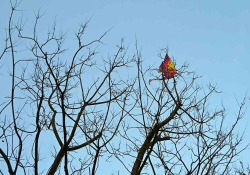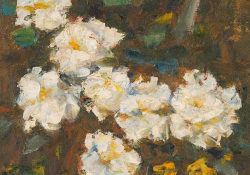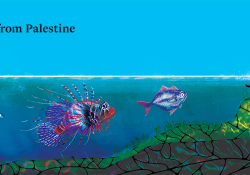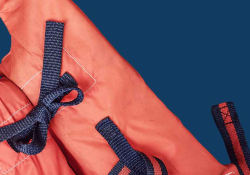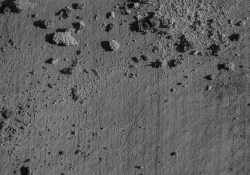Two Quechua Poems
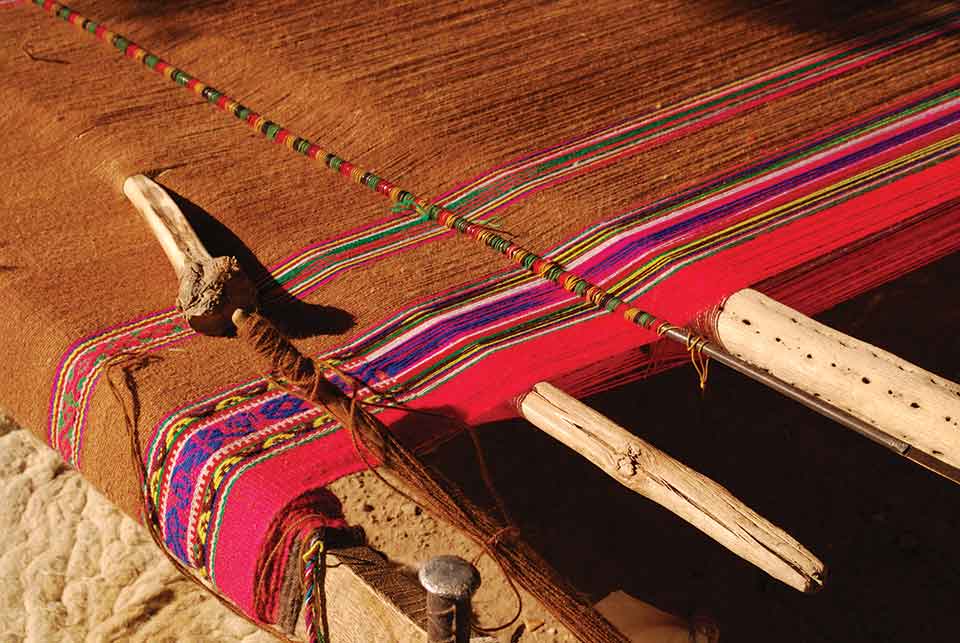
The audio recording of “Simi” can be found here on the Musuq Illa website.
Simi
by Olivia Reginaldo
Kay simiy ruwasqaykita atipanchu
qilla qalluy
qulluypaq qillqan
Kay simiy kasqaykita kamarikunchu
chukchu kichka
chikan kanchu
Kay simiy ripusqaykita aypanchu
nanayniy ninay
niy nina
Simi
My words cannot conjure the things you do
my idle tongue
writes toward a vanishing
My words cannot enclose all that you are
a trembling of thorns
absolutes exist nowhere
My words are no match for your retreat
give voice to my affliction
say fire
Simi
Mis palabras no pueden superar las cosas que haces
mi ociosa lengua
escribe para la extinción
Mis palabras no pueden contener lo que eres
temblor de espinas
lo absoluto no existe
Mis palabras son incapaces de alcanzar tu partida
convocar mi dolencia
decir fuego
Spanish translation by Pablo Landeo Muñoz
Editorial note: The Quechua original first appeared in Musuq Illa: A Digital Quechua Poetry Collective (2021), © by Olivia Reginaldo. Pablo Landeo’s Spanish translation first appeared in Revista OJO X OJO 1 (2021).
***
The audio recording of “Tik’ha Takiy” can be found here on the Musuq Illa website.
Tik’ha Takiy | Song to the Flowers
by Elvira Espejo Ayca
Oh mallow root, mallow root
across these windswept heights,
my lover roams
Once young,
the sun was on the rise
and now,
the sun descends
The clouds advance, the winds they swell
The people come, from sorrows they come
With the rains they come, with the winds they come
and thus, for you, they come
Across the sapphire river, across the Pukara plain
In search of you I shall
walk on, and so, walk on
Near here, chikaylla you might come
So far, karumanta, you can’t wish to flee
Could that be you, just there
behind me?
and me here still searching
for you
And I will go downriver
And I will go upriver
Where my love shall I find you?
Traversing the pampas of Oruro
crossing Bolivia
searching,
gathering just dahlias
weeping,
walking
I shall leave Oruro now
my woven aguayo
lost
carrying cloth for all things
what reason to remain?
And high above, Condor
soars
his white shawl tightly tied
above sacred Illimani’s peak
he ascends
Where is it now he is off to?
And so you are my only
And so I am yours only
And so we shall be together
weeping
on
I shall steal you away, leading you
Within my heart, leading you
away . . .
Translation from the Quechua
Tik’ha Takiy
Malwa saphi malwa saphi
munasqay luma wasapi
Juch’uy nuqa kaxti
intipis phawarin
kunan wiñapuxtin
intipis pakaykun
Phuyu phuyumuchhan wayrawan jamuchhan
runa jamuchhan kuyay kuyay jamuchhan
Parawan suxrawan jamuchhan
qanrayku jina jamuchhan
Silisti mayu pukara pampa
noqa purimuni qanta mask’aspa
Kay chikaymanta chikaylla purinki
kay karumanta ama munankichu
Ima munaspa qhipay purinki
nuqata qanta maskaspa?
Uraymayuntachus risax
wichay mayuntachus risax
mayllapichus taripallasqayki?
Ururu pampa richhaspa
Bolivia mask’aspa
Dalias t’ikasta pallaspa
Waqaspa purini
Llijllitayta chinkachikurqani
Ururumanta kunan ripuchhani
Kuntursituy altu phawa
Yurax chalinita wataykusqa
illimani limantachus phawachhanki
Mayllapitax purichhanki?
Qanllachu nuqapax
Nuqachu qanllapax
Kayjina waqanaypax
Suwasqayki pusasqayki
Sunqa ukunta pusasqayki . . .
Canto a las flores
Raíz de malva, raíz de malva
mi amado vaga por cerros vacíos
Cuando era niña
el sol subía
ahora que me acerco al fin
el sol baja
Las nubes se asoman, el viento sopla
las personas vienen, de pena vienen
Con lluvia viene, con viento viene
por ti así vienen
Por el río azul, por la pampa de Pukara
En busca de ti caminaré
Por estas cercanías has de llegar
por esas lejanías no has de querer ir
¿Qué queriendo llegaste por mi detrás?
y yo en busca de ti
Iré por el río de abajo
Iré por el río de arriba
¿Dónde te encontraré?
Caminando por las pampas de Oruro
buscando Bolivia,
Recogiendo flores de dalia
Llorando siempre he caminado
Me estoy yendo de Oruro
Perdido mi aguayo
No hay razón para quedarme
El cóndor que vuela por las alturas
Con su chalina blanca amarrada
Pasando por el cerro Illimani
¿a dónde siempre estará yendo?
Tú serás para mí
Yo seré para ti
Para estar siempre juntos
llorando
Te voy a robar
te voy a llevar
Para dentro de mi corazón
Te voy a llevar . . .
Spanish translation by Elvira Espejo Ayca
Editorial note: From Kaypi jaqhaypi / Por aquí, por allá (Lima: Pakarina Ediciones, 2017), © Elvira Espejo Ayca.





